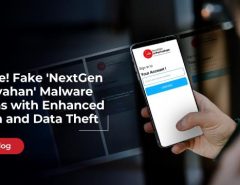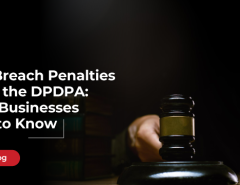The recent data breach at one of India’s largest health insurance companies has left millions of customers vulnerable, raising serious concerns about data privacy and security. With personal and medical information exposed, many are left wondering: How could this impact me?
The Breach
A UK-based security researcher, Jason Parker, recently revealed that sensitive data of over 3 million health insurance customers was available through Telegram chatbots. This leaked data includes highly personal information such as mobile numbers, PAN numbers, email addresses, physical addresses, and even medical records.
While the case is under investigation, one thing is clear—this breach highlights the critical need for the Data Protection and Digital Privacy (DPDP) law to be enforced and implemented swiftly. However, even with such laws, questions remain about how this will affect the everyday person.
What Does This Mean for You?
Once your sensitive data is out there, it can be exploited in numerous ways by cybercriminals and fraudsters. This isn’t like a password that can be changed. The exposed data includes personal and unchangeable details such as your physical address, PAN number, and health information.
With this data in hand, fraudsters can:
- Reset your banking or email passwords.
- Perform SIM card swaps to take over your phone number.
- Commit identity theft or take loans in your name.
- Sell your personal and health information on the dark web.
The implications of such breaches can be long-lasting and difficult to resolve, potentially leading to financial fraud, loss of privacy, and even emotional distress as sensitive health details are made public.
What Can Be Done?
In the wake of a breach, many people feel helpless. Here are some steps you can take:
- Monitor your financial accounts: Keep a close watch for any suspicious activity or unauthorized transactions.
- Activate two-factor authentication: This adds an extra layer of security to your online accounts, especially banking and email.
- Consider freezing your credit: In case if you see your identity being used, you should consider freezing your credit first to stop more losses.
- Use AntiFraud.AI : It will be good to have Quick Heal AntiFraud.AI installed on all your devices as it catches and alerts you of fraud happening on your mobile or laptop.
Corporate Responsibility
This breach underscores the urgent need for companies, particularly those handling sensitive customer data, to adopt robust cybersecurity measures. Compliance with data protection regulations should not just be seen as a legal requirement but as a corporate responsibility to protect customers from harm.
Non-compliance should come with significant penalties to ensure companies take data security seriously. A breach like this could—and should—lead to widespread reforms in how organizations approach data privacy.
Conclusion
Data breaches like this one are a reminder that we live in a digital age where personal information is constantly at risk. While regulatory frameworks like the DPDP Act can help enforce better data protection practices, individuals must remain vigilant and proactive in safeguarding their own information. In the meantime, companies must face accountability, and stronger penalties should be imposed to ensure the protection of sensitive data.




